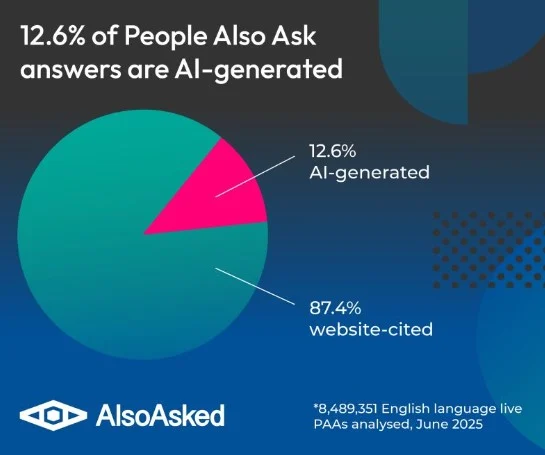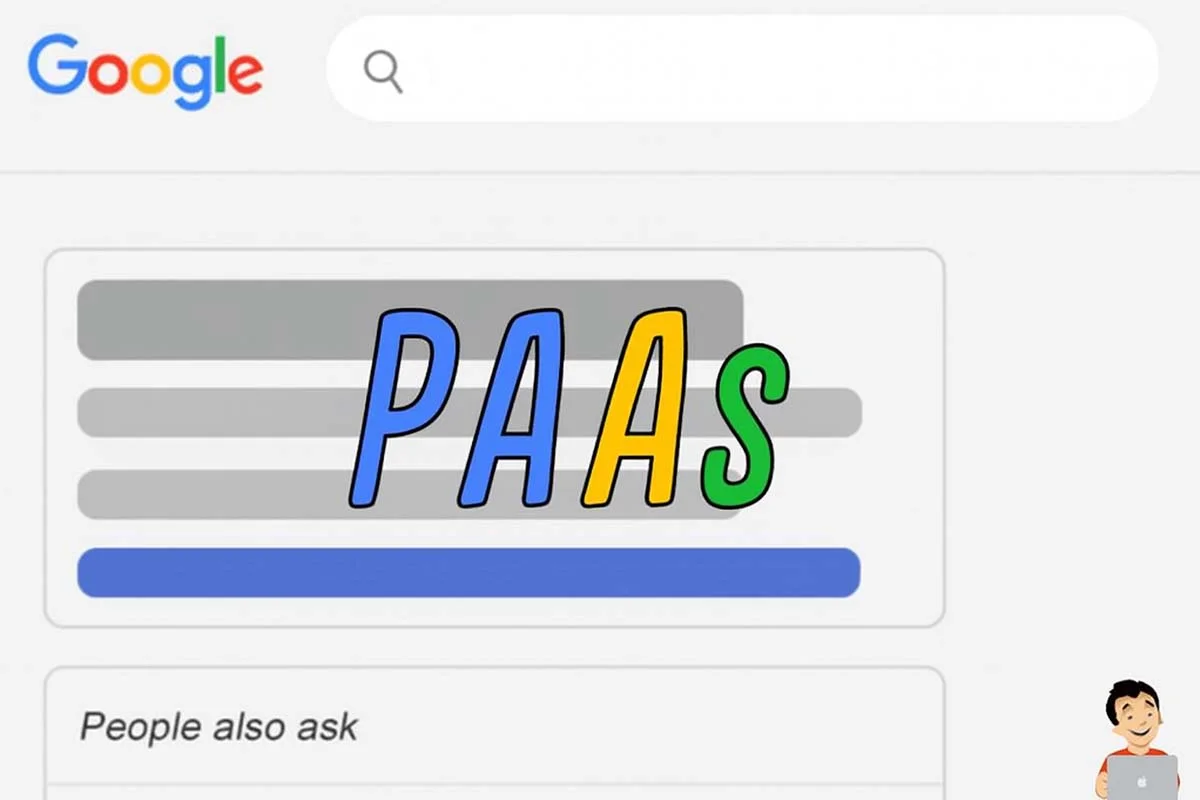Google generates People Also Ask answers nearly 13%
New information shows that Google answers its own “People Also Ask” questions more often
SEO specialist Mark Williams-Cook says that Google is now giving almost 13% of replies in the “People Also Ask” (PAA) feature of its search results. This is a clear change in how Google finds and shows information, and it shows that the company is moving more toward relying on itself to provide search content.
A Big Change in PAA Strategy
The PAA section used to include snippets from third-party websites to help people find more information on relevant questions. But this latest research shows that Google now makes 12.82% of PAA responses itself, instead of getting them from other places. Unlike regular featured snippets, these AI-generated snippets frequently don’t link to a specific publisher or website.
This change suggests that Google is using its Search Generative Experience (SGE) technology more and more, including in parts of search that used to depend on publisher content.
What It Means for SEOs and Publishers
The rise of replies from Google has big effects on publications and SEO experts:
- Less visibility: Since Google gives its own answers, fewer sites may get impressions and clicks from PAA features.
- Zero-click searches: Traffic to other websites may go down as people discover answers without leaving the SERP.
- More reliance on Google’s systems: Because Google can summarize and combine content, marketers need to make sure their content is optimized for inclusion, even if it isn’t directly cited.
How to Tell if Answers Come from Google
Mark’s review of data looked at more than 2.5 million PAA boxes. He figured out that the answers came from Google because they didn’t have a link that could be clicked, didn’t have a citation, and had a consistent formatting style that was different from snippets from other sites. These AI-generated answers tend to give short, generic information that is similar to what you would get from a virtual assistant.
The Bigger Picture: Google’s Role in Content Is Growing
This is part of a bigger trend in which Google is becoming more and more of a search engine and content generator. As AI tools like SGE and Gemini integrations continue to be added to Search, the lines between finding and making content are becoming less clear.
This could make the user experience better by giving them faster responses, but it also makes it harder for content providers to get noticed in the search ecosystem.
Conclusion
SEO techniques need to change as Google does. The fact that over 13% of responses in the PAA section are generated by AI shows that Google is becoming more sure of its capacity to make dependable content. This is both good and bad for the digital world as a whole.
Mark Williams Cook shared this on LinkedIn:


